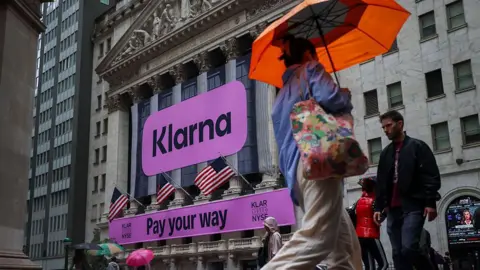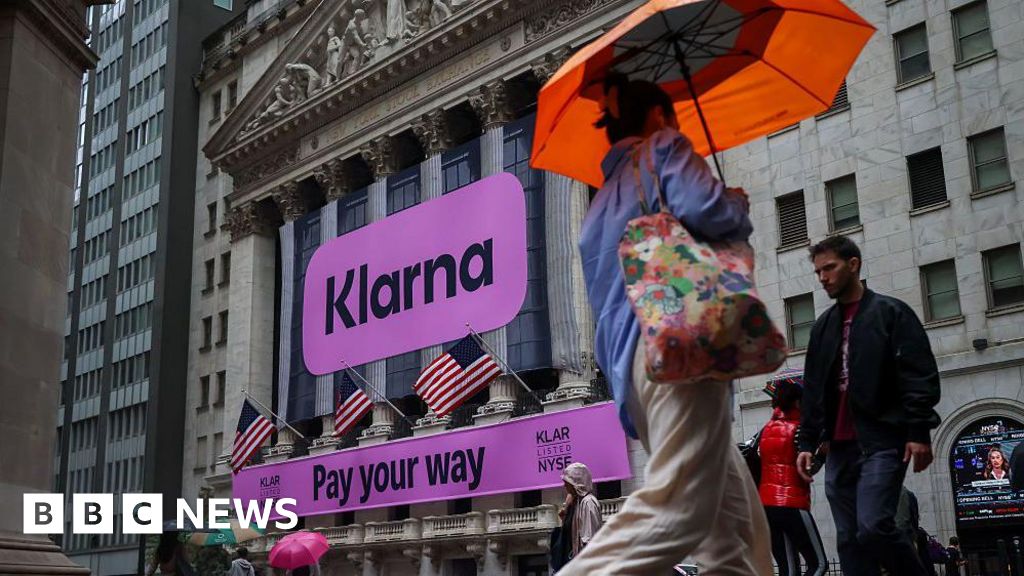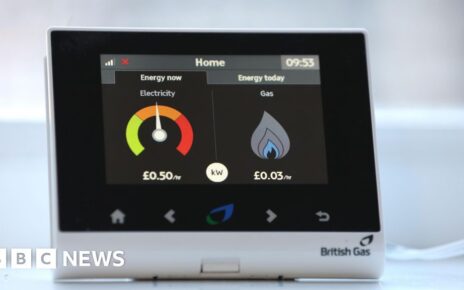 Bloomberg/Getty
Bloomberg/GettyShares in buy-now, pay-later lender Klarna jumped on their first day of public trading in the US, giving the firm a market value of more than $19bn (£14bn).
It marks a significant milestone for the Swedish lending giant, which has cast itself as a challenger to credit cards and traditional banks.
Founded in 2005, the company is known for allowing shoppers to pay for purchases in smaller, interest-free instalments and has proven popular, with roughly 93 million active users across 26 countries.
But the firm has faced ongoing questions about the risk that its business model could lead people to spend beyond their means.
Klarna handled transactions worth $105bn last year. It is a major global player in the shopping space, entering the UK in 2014 and the US in 2019.
In its home country of Sweden, more than 80% of adults used the service last year, according to the company.
In a message to staff shared by the company, chief executive Sebastian Siemiatkowski said the moment would provide “fuel” to the company as it seeks to make similar inroads in other markets.
The firm raised $1.37bn in the initial public offering (IPO), selling shares for $40 apiece, in a deal that also allowed longtime investors such as US venture capital giant Sequoia Capital to cash in.
Shares opened for trading at $52 apiece, surging 30% from the IPO price, which had valued the firm at $15bn.
The company continues to trade at a discount compared with 2021, when an investment by Softbank Group put the value of the firm at more than $45bn. The firm was subsequently hit by economic slowdown and rising interest rates.
Joachim Dal, a partner at GP Bullhound Investment Management, said he thought investors had misunderstood Klarna, which makes the bulk of its money by charging a fee to sellers for purchases involving its pay later service.
“In our view it’s more of a payment company than a lender,” he told the BBC’s Opening Bell show, noting the “very low” rates of late payments. “It’s more about facilitating a smooth experience on the payment side than about providing credit to consumers.”
Last year, Klarna reported revenue of $2.8bn, up 24% year-on-year.
But since entering the US, its profitability has suffered, as it faces higher costs for processing transactions.
It reported a $52m loss in the three months to June, up from $7m a year ago.
Klarna has been eyeing a public offering for years. A plan to debut in April was delayed after US tariff announcements roiled financial markets.
But shares in the US have since recovered, with major indexes trading at record highs.
Several other firms, including crypto firm Gemini, are planning public offerings this week, seeking to take advantage of the favourable climate.
“For any company in the technology sector that is looking to go public, there is only one market and that is the market on Wall Street,” Mr Dal said.
“That’s where you have the most liquidity, most of the coverage of equity analysts that’s where you have most of the comparable companies listed and frankly you get the highest valuations as well.”




